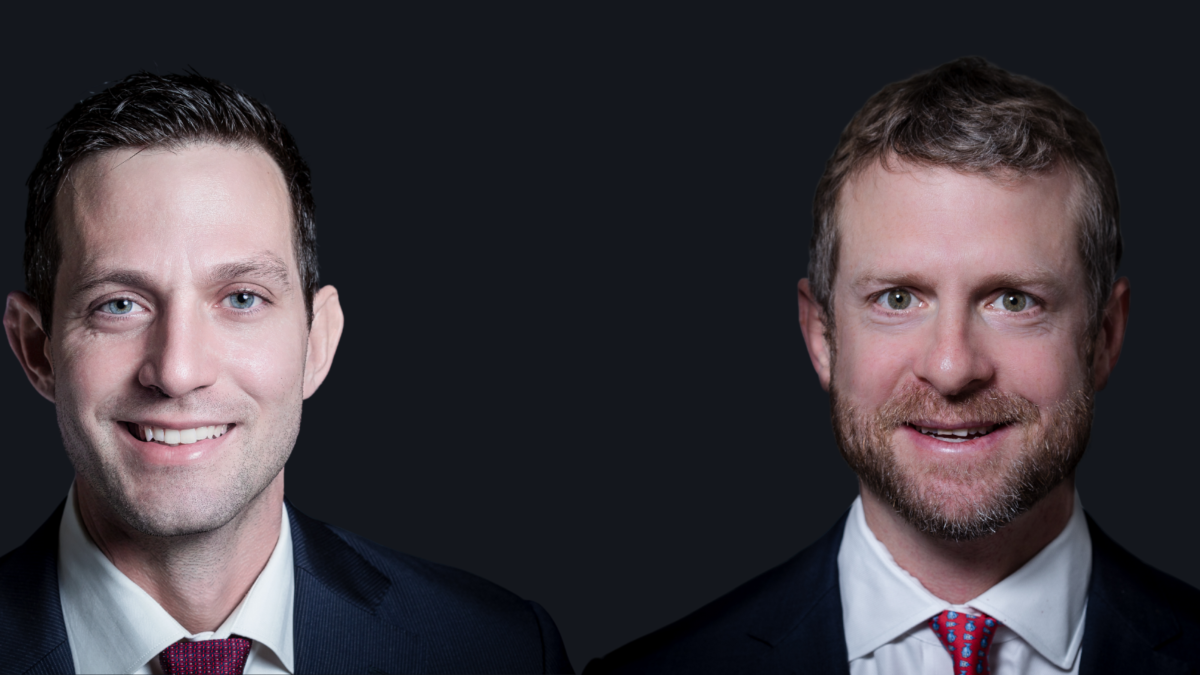‘We don’t believe in hopes and dreams’: Why this hedge fund is long solar, short flying cars
“The decarbonisation sector has an incredible amount of dispersion,” says Charles Labanowski, founding partner of decarbonisation-focused hedge fund Goodlander. “Global energy is going through a disruptive period, decarbonisation is growing, but very unevenly. The wealth and profits of that shift are not going to be evenly allocated to all the different competitors.
“You have companies in our sector that are down 90 per cent plus year-to-date, and you have companies that have more than doubled. That’s what you want to see as a long-short investor. You don’t want companies all moving together up and down – you want to see this variety of outcome. That’s the holy grail for long short.”
Labanowski (photo at top left), who has worked at Dutch pension fund PGGM and Ownership Capital, a sustainable investment manager spun out of PGGM’s in-house equity capability, started Goodlander with his brother John (top right), who previously ran energy-focused hedge fund Brenham.
Brenham sought to exploit the dispersion in energy equities brought about by the US shale boom – but the oil industry between 2012 and 2018 “was a brutal place to be”. Brenham’s closest benchmark, the Russell 2000 Energy Index, was down 70 per cent over the life of the fund, while Brenham was up 71 per cent on the strength of its short and long bets.
Still, the fund’s strategy was ultimately foiled by “inconsistent OPEC policy” and a lack of dispersion the energy sector, where many companies had gone bankrupt and market caps had been obliterated. After successive down years, the fund was closed – but the long and short learnings from it have now been applied to the decarbonisation market.
“In these very capital intensive industries, which energy was and decarbonisation is, the most attractive shorts are companies that are running out of money,” Labanowski said. “And then they have to go back to the market and they have to dilute – and when they can’t raise money they go out of business.”
Space mining companies are one target of Goodlander’s shorts; flying taxis are another. A perennial symbol of a future just out of reach, the flying taxi industry – or, as they call themselves, the Electric Vertical Take Off and Landing (EVTOL) industry – has seen some interest. But even a disinterested observer could dream up some of the associated costs and challenges.
“It has that sci-fi edge to it, it can be very exciting, you pull up one of these company’s presentations and they’ll talk about trillion dollar market opportunities,” Labanowski said. “Forget billions – it’s trillions. The total addressable market seems so large, and over the past couple of years many billions of dollars have been funnelled to these companies. Many have gone public – but they’ve gone public not with revenues and profits, but with hopes and dreams that are many, many years from being fulfilled.”
None of those EVTOL vehicles are operational; building them will cost billions of dollars, to say nothing of hiring pilots and marketing efforts. The technology is still in its infancy, and there’s the huge hurdle of regulation to contend with.
“We don’t short every company in this area… We target the one or two worst of the worst companies,” Labanowski said. “That’s a company that still has quite a substantial valuation but is running out of money. We look for a catalyst – what is going to force the market to rerate this company lower?”
“The growth case is easier for people to understand; there’s going to be trillions poured into decarbonisation, most of the markets we look at have single-digit penetration rates. But the other aspect to it is that decarbonisation is a very capital intensive market, a very competitive market, with different kinds of regulatory and technology risk.”
The long bets are focused on growth opportunities in companies that are profitable today. In the United States, rooftop solar is a “very interesting subsector”. For years, solar had to contend with the relatively low prices offered by local utilities. Now those prices are rising dramatically while installation costs have fallen over the past decade, making solar more competitive. Meanwhile, the electric vehicle (EV) supply chain has outpaced “even the most optimistic growth projections” but is still under-penetrated, even as every automaker in the world commits to aggressive EV sales goals.
“We don’t believe in hopes and dreams, we believe in companies that have demonstrated business models and dominant positions,” Labanowski says. “That’s a big thing that’s changed from five years ago – you have more companies that are dominant leaders that have pricing power.”
Still, the macro picture has overshadowed fundamentals this year. Interest rates, inflation and recession fears have been the dominant theme, and what’s been lost in the mix is the Biden administration’s announcement of the Inflation Reduction Act (IRA) – a “goofy name” for what is essentially a climate bill that “provides tremendous support for a range of clean energy technologies over the next ten years.”
“The United States has never had that level of visibility and that level of support, and if you talk to practitioners – not investors, but the people working out in the field installing the solar panels, financing projects – this is a total game changer for the industry,” Labanowski says. “I’d argue that the fundamental effects of the IRA – how much it’s going to expand the market, accelerate the market – are much more important than what the Federal Reserve does at its next meeting.”











